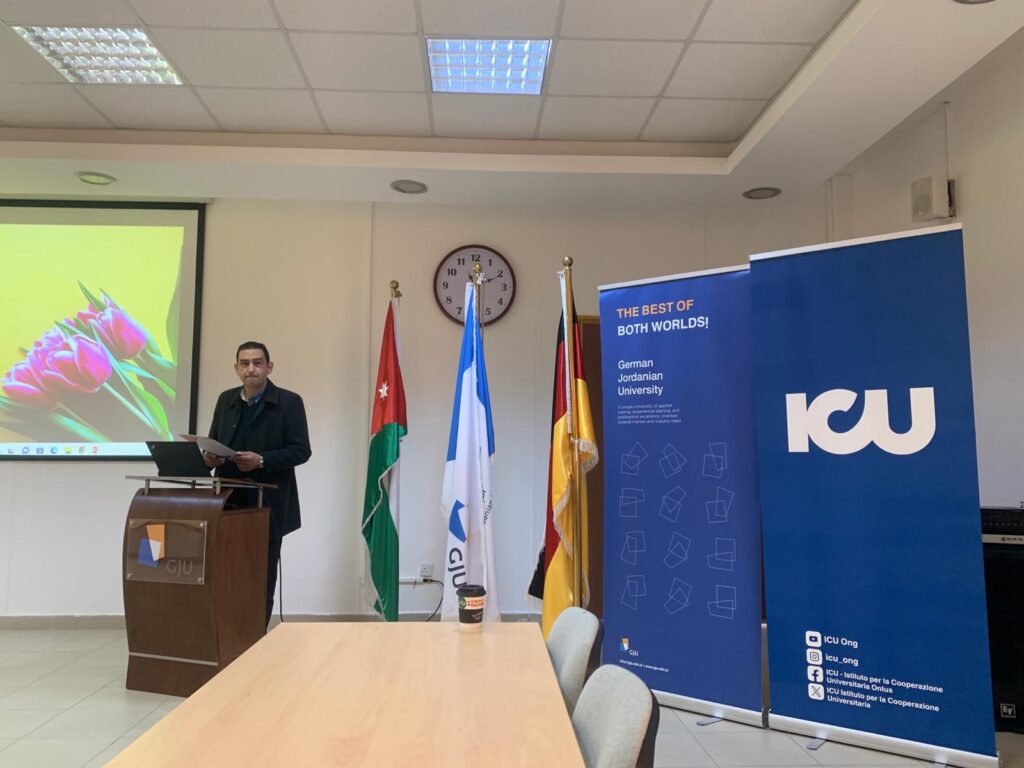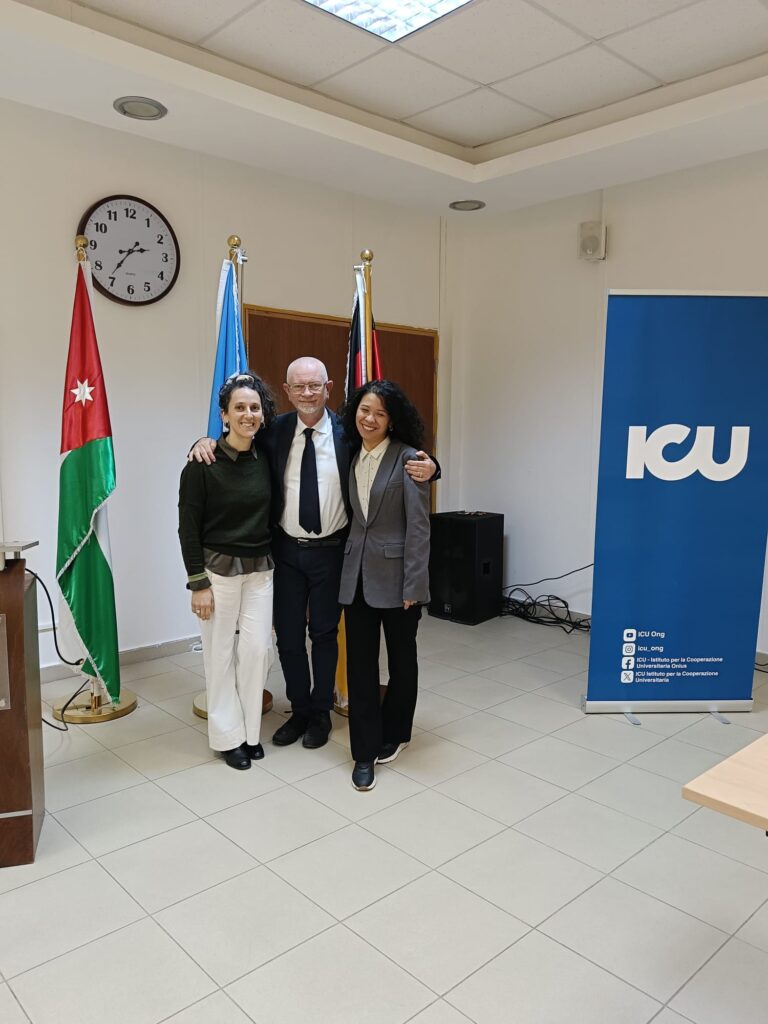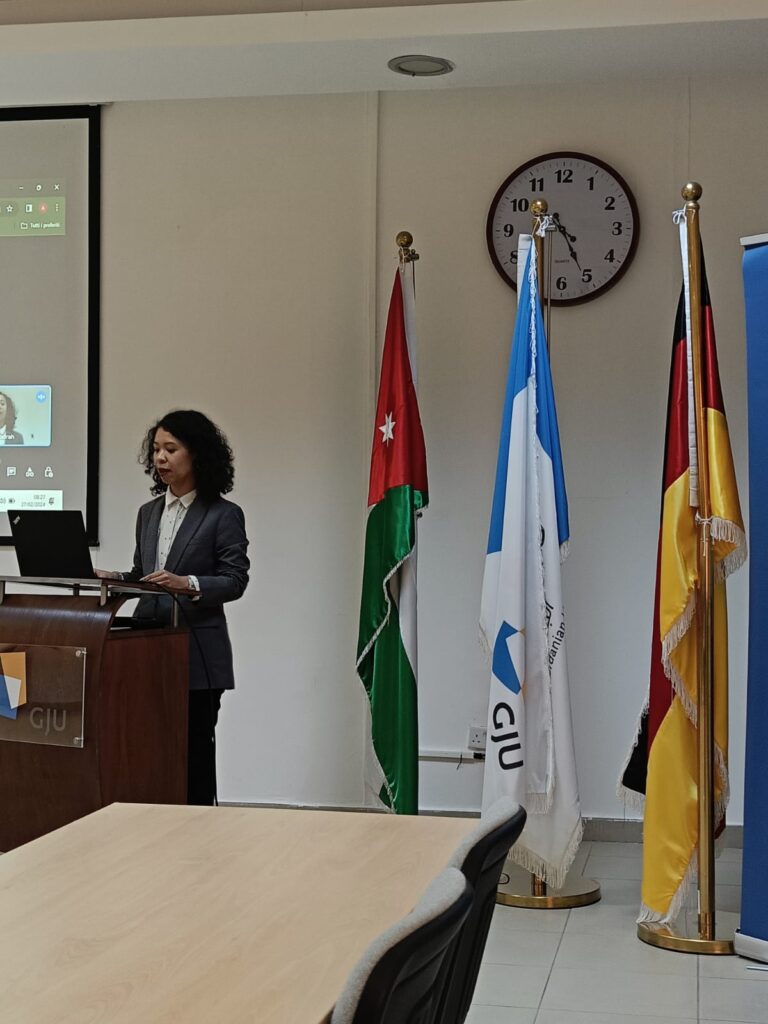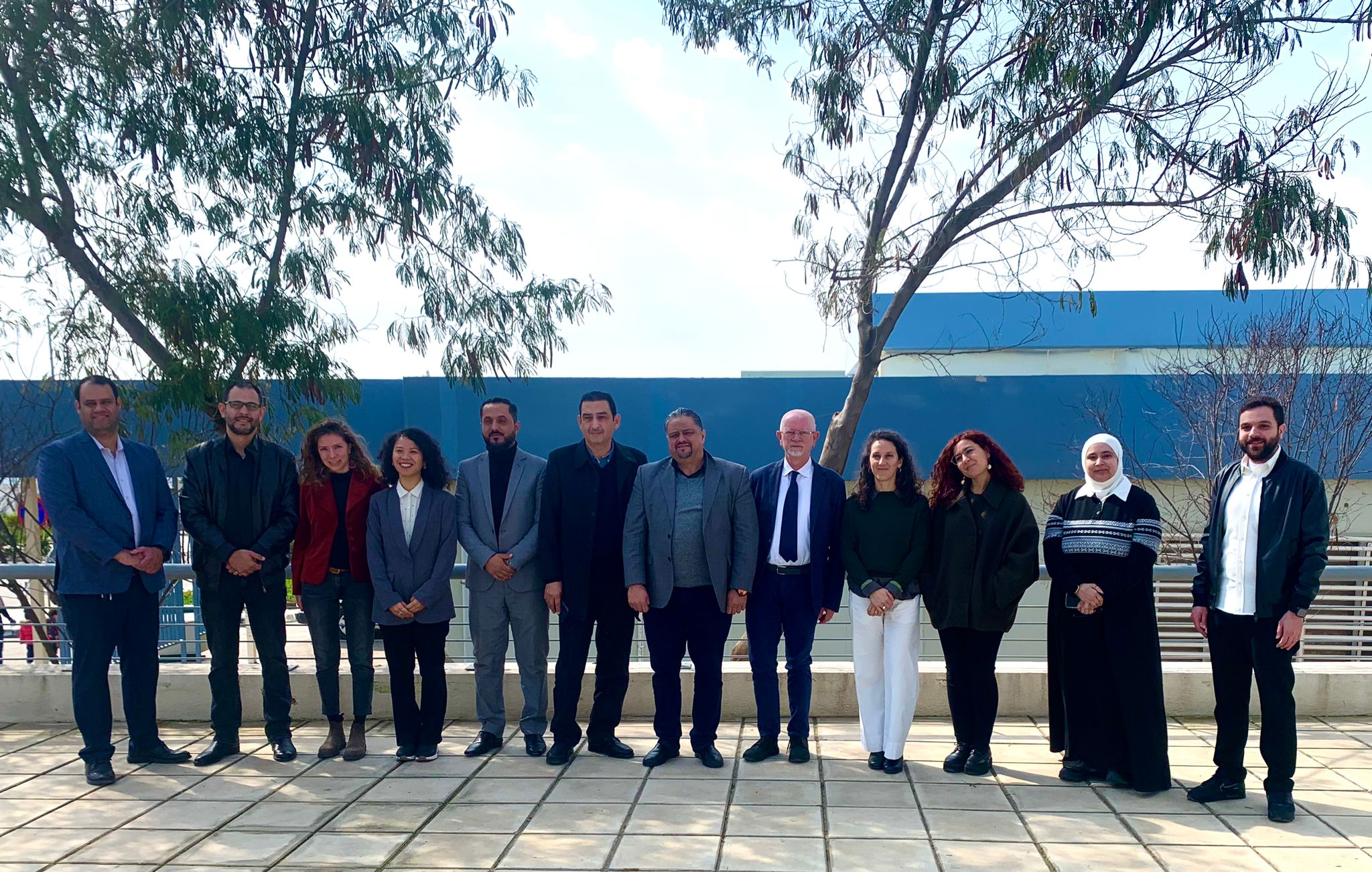In the span of the last two years, the project “Increasing Access and Planning of Efficient Cooling Solutions in Jordan” – financed by Climateworks Foundation – has made significant strides towards promoting sustainability and energy efficiency within the country.
This initiative, a collaborative effort between our Institute and the esteemed German Jordanian University, has yielded remarkable results.
The project’s excellent results were presented Feb. 27 by ICU on the GJU campus. ICU’s Senior Energy Expert Maurizio Casarci presented the milestones of the pilot project during the first part of the event. One of the project’s key achievements was the successful integration of cooling commitments into five sections of the new Nationally Determined Contributions (NDC) in Jordan. This was made possible through our comprehensive assessment of ozone regulations and strategic planning, which involved meticulous high-level reviews.

Moreover, the project addressed the pressing need for infrastructural enhancements in Jordanian schools to improve their cooling efficiency. An extensive thermal and energy audit conducted in 10 public schools highlighted this necessity. Subsequently, working closely with the German Jordanian University, we successfully installed both passive and active cooling systems in four selected schools across the country, ranging from the northern region of the Jordan Valley to the village of Bait Yafa near Irbid. These installations, including air conditioning (AC) and photovoltaic (PV) systems, ceiling fans, and rooftop insulation, not only improved the thermal comfort of the schools but also significantly reduced energy costs.
To further enhance the project’s impact, we organized tailored training sessions for municipal technicians, policymakers, and school staff. These sessions focused on understanding current cooling systems and optimizing energy consumption. Equipping the school personnel with necessary skills ensures they can effectively maintain and operate these cooling systems, contributing to long-term sustainability. The success of this pilot initiative has led us to propose a further extension of this program to the Ministry of Education. We aim to implement it in a financially sustainable manner, ensuring its long-term benefits for schools and the wider society in Jordan.
In conclusion, the collaborative efforts between ICU, the German Jordanian University, and various government bodies have made a significant impact on promoting sustainability and energy efficiency in Jordan. The project has not only introduced climate-friendly cooling solutions but also laid the foundation for long-term, positive environmental changes.
Our ongoing commitment to this endeavor reflects our dedication to fostering sustainability at every level. We look forward to continued collaboration and the continued success of this initiative.





